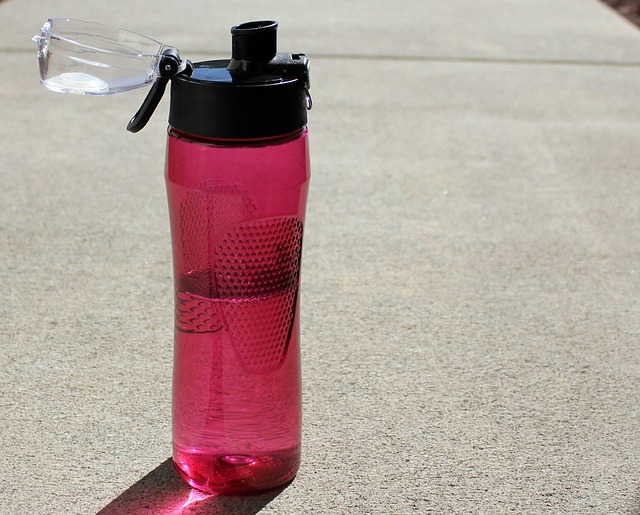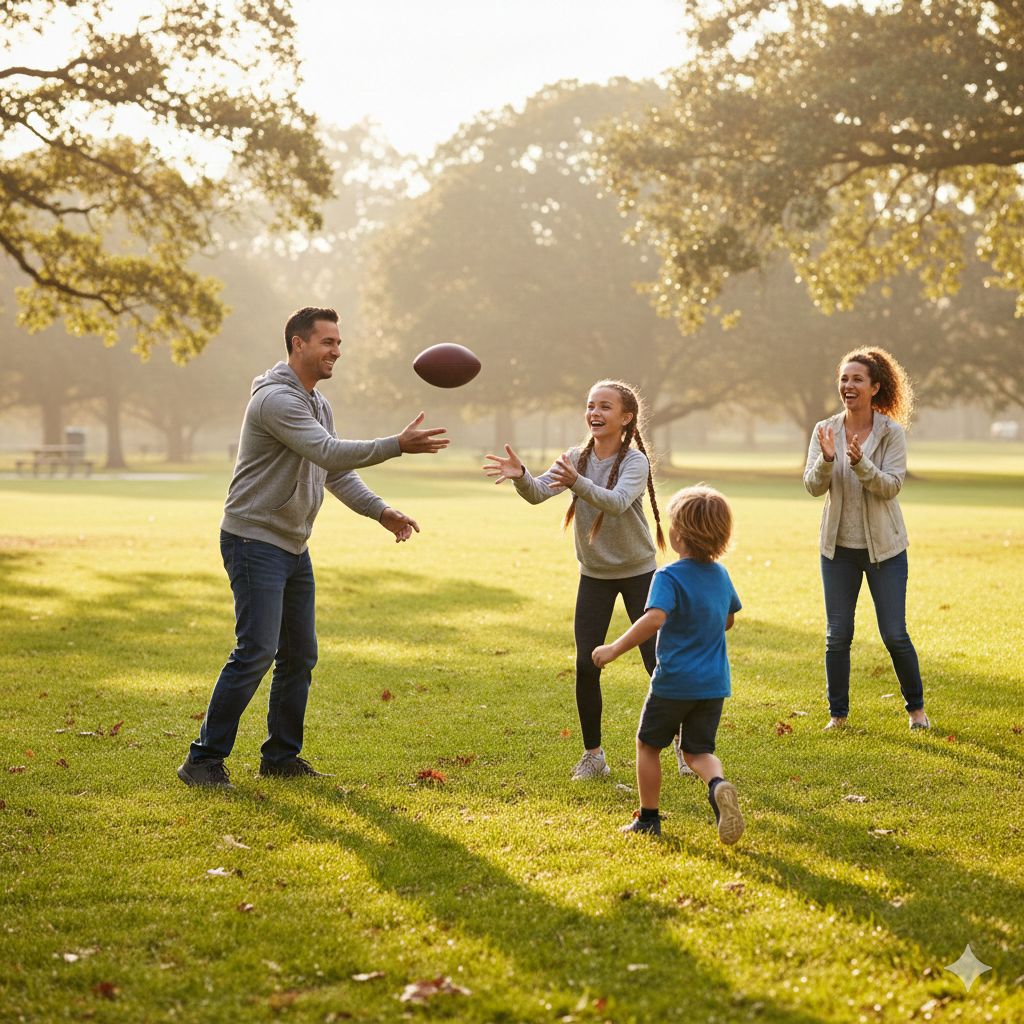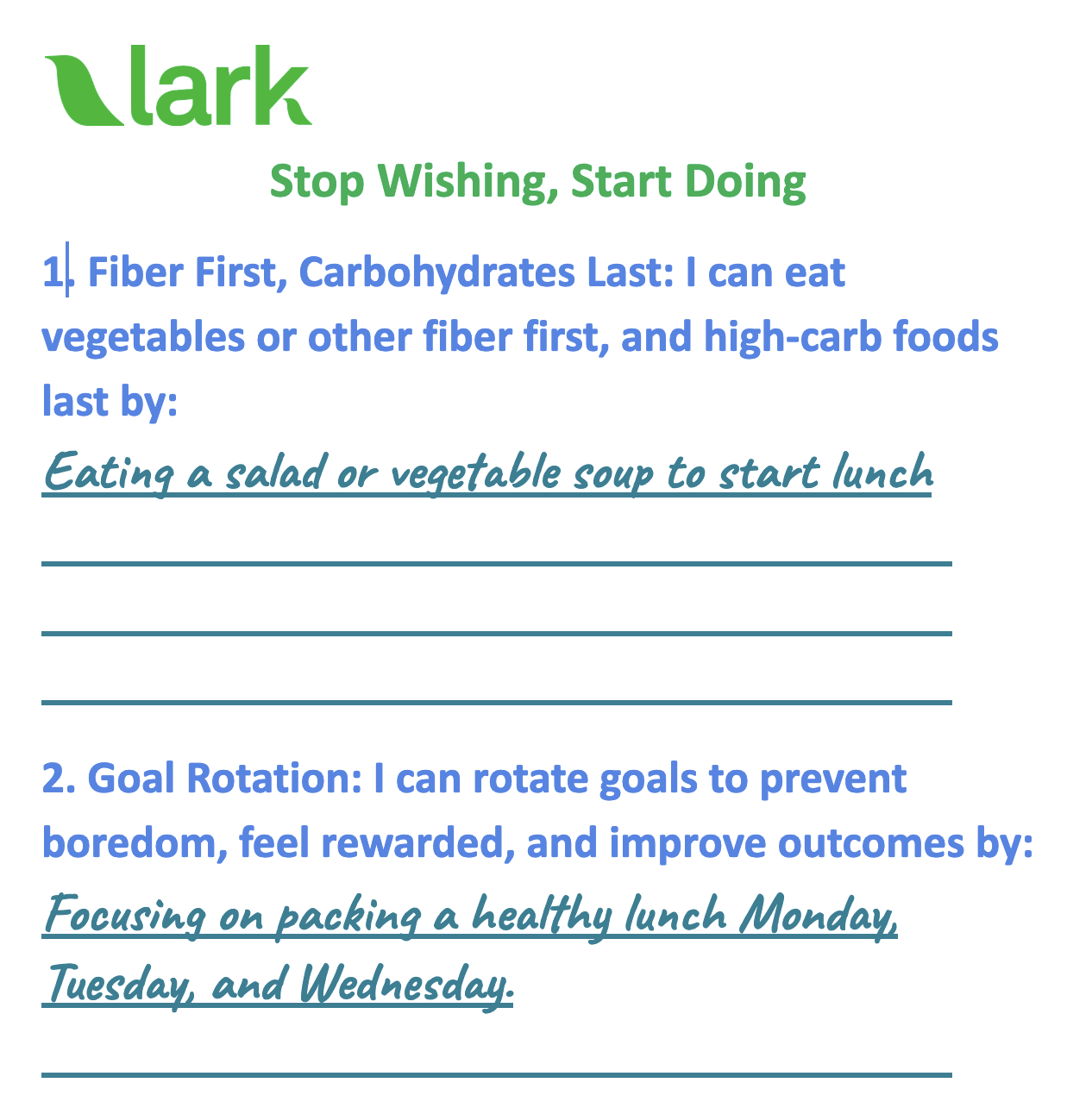In this article:
- Water is an essential nutrient. It cushions joints, protects organs, enables blood pressure maintenance, and supports temperature regulation, immune function, and circulation.
- Adults may need 11-16 8-ounce glasses of water per day, or about 2.7-4 liters.
- Water, low-calorie fluids like coffee and tea, and other non-alcoholic beverages count towards fluid requirements. Water in foods like fruit and soup also counts.
- Fluid needs can increase with heavy sweating, hot weather, humid or windy weather, illnesses, and pregnancy.
- Watch for signs of hydration and dehydration to guide fluid consumption, and ask your healthcare provider if you have questions or concerns.
- Water intoxication is a rare but potentially fatal condition.
- Sports drinks can be valuable sources of fluids, electrolytes, and energy, but most people don’t need them under normal circumstances.
- Your Lark coach is available 24/7 to support hydration and other choices related to nutrition and physical activity.
Hydration is important year-round, and water’s even more likely to be top of mind during summer heat. You may have noticed how good water can taste when you’re thirsty, but you don’t always feel thirst before you’re already mildly dehydrated.
How much water do you need during the summer? Does it have to be water, or can other fluids hydrate you? Are sports drinks a good idea? What if you drink too much water?
Here’s what you should know about why water is so important for survival, health, and quality of life, along with how much you need and how to tell if you’re getting enough. You can also learn which fluids are best for hydration and when you may need sports drinks or electrolyte drinks.
Daily Water Requirements
Water is the most important nutrient because you need the most of it, and you start to dehydrate if you go without it for more than a few hours. The US National Academies of Sciences, Engineering, and Medicine (NAS) set the dietary reference intake (DRI) for water at an adequate intake (AI) of 11 8-8-ounce cups per day for women, and 16 cups for men.
Your body is 50-70% water. Here are some roles of water in your body.
- Carries nutrients and oxygen throughout your body in circulation
- Cushions joints, organs, and other tissues
- Maintains blood pressure and volume
- Supports digestion and other processes
- Regulates body temperature
Water in foods count towards your requirements, so you don’t need to drink your entire 11-16 cups every day. Soup, fruit, vegetables, and yogurt are examples of foods with a high water content. Here are tips for drinking more water.

Hot Weather and Other Reasons for Variations in Fluid Needs
Your own fluid requirements vary greatly depending on individual factors. Here’s a calculator for estimating your daily fluid needs based on characteristics like age, gender, height, and activity level.
Here are some factors that can increase fluid needs.
- Especially long or high-intensity workouts that lead to heavier sweating than usual
- Hot, windy, or humid conditions that can be dehydrating
- Having a fever or infection
- Having high blood sugar
- Being at high altitudes
- Being pregnant or breastfeeding
- Traveling on an airplane
Ask your healthcare provider if you’re curious about your fluid requirements.
Best Fluids for Hydration
Water is the optimal choice for hydration. It’s calorie-free, widely available, and low-cost or free. Ice water and sparkling water are other calorie-free options. For extra flavor, try water with slices of fruit like lime, lemon, orange, peach, or pineapple. Sliced cucumber, leaves of mint or basil, and fresh ginger can also add variety.
For alternatives to water that are hydrating and healthy, look for low-calorie or calorie-free beverages. Here are some options.
- Black coffee or coffee with a splash of almond milk or a packet of stevia
- Unsweetened black, green, or herbal hot or iced tea
- Low-sodium broth
Caffeinated beverages like caffeinated coffee and black or green tea count as hydrating beverages. Just be sure to stay within your limits. For most people, the recommendation is to keep caffeine consumption to under 400 mg per day, or the amount in four small cups of coffee. Some people should have less.
Some caloric beverages without added sugars have nutrients and can be part of a healthy diet. Skim milk and unsweetened soy milk, for example, have about 90 calories per cup and have protein and calcium. Unsweetened almond and coconut milk have fewer calories, but are low in protein. Fruit juice has about 120 calories per cup, with all of the calories coming from natural sugar and no protein. Be sure to account for the calories you consume from caloric beverages.
Sugar-sweetened beverages count towards fluid requirements, but they’re not usually associated with health benefits. Soft drinks, sweetened coffee and tea, fruit drinks, and energy drinks are often sweetened.
Can You Drink Too Much Water?
Hyponatremia, or water intoxication, is a rare condition that can result from drinking too much water in too short a time. The kidneys can process about 3-4 cups of water per hour. Drinking much more than this if you don’t need it can be risky.
The National Academies of Science (NAS) says that though acute water toxicity can happen, “there is no evidence that habitual consumption of a high total water intake results in identifiable hazards in apparently healthy people.” That’s why the NAS didn’t set an upper limit for water.
Water or Sports Drinks for Summer Workouts?
The classic scenario for water intoxication involves an endurance athlete competing under exceptionally hot conditions. During the event, the athlete drinks water instead of sports drinks, which means the athlete isn’t replacing electrolytes lost in sweat. Eventually, hyponatremia occurs, and it’s a life-threatening condition.
Another reason why people may choose sports drinks is that the sports drink industry has spread messaging that sports drinks are necessary for optimal hydration. But are they really? Or is water okay?
In most cases, water is adequate for hydration during and after workouts. Here are some best practices.
- Stay hydrated all day
- Drink 1-2 cups of water an hour before a workout
- Drink 8 ounces of water every 15-20 minutes during a workout when you're sweating
- Weigh yourself before and after your workout. Drink 16 ounces of water for each pound that you lost during your workout.
Most people don't regularly need sports drinks or electrolyte supplements. You may need them if you sweat heavily for at least an hour or if it's particularly hot.
Sports drinks can have these differences compared to water.
- Electrolytes - Minerals like sodium, potassium, and chloride are essential for proper water balance in your body, and their presence in sports drinks speeds fluid absorption into your body
- Energy - Many sports drinks have glucose or other carbohydrates for a quick source of energy or calories.
- Taste - A sweet taste can encourage you to drink more if you don’t like the taste of water
If you do use sports drinks with calories in the form of glucose, other carbohydrates, or protein, remember to count those calories in your daily totals.
Keep in mind that you may also need to consume water while you’re consuming the sports drink. Otherwise, you may have stomach cramping or an upset stomach. It’s best to experiment with what works best for you, since people and their training and competition schedules are different.
Signs of Hydration and Dehydration
If you're properly hydrated, you're likely to need the restroom regularly, such as every 3-4 hours. Urine should be light colored or nearly clear, and you should feel no or only mild thirst.
Here are some common signs of mild or moderate dehydration.
- Headaches
- Low energy or lethargy
- Trouble thinking clearly
- Reduced sweating
- Dark yellow urine or reduced output
- Dry mouth
- Thirst
- Thirst signals may feel like hunger signals
Here are signs of moderate or severe dehydration.
- Very dark or no urine
- Extreme thirst
- Low blood pressure
- Rapid heartbeat
- Confusion
- No sweating or tears
- Skin stays wrinkled if you pinch it
Ask your healthcare provider if you have these or any other symptoms, since they can be signs of serious conditions that need medical attention. Also, ask if you're not sure how much you should drink or if you aren't sure if you're staying well hydrated.
How Lark Can Help
Small changes can help you improve heart health, lose weight, and manage or prevent chronic conditions. Lark can help you make positive choices on a daily basis. Your Lark coach is available 24/7 for encouragement, nutrition and physical activity coaching, and habit tracking. Lark can help you make healthy choices and establish habits that fit into your lifestyle so you can lose weight and keep it off with or without GLP-1 medications.
Click here to see if you may be eligible to join Lark today!



.jpg)








.webp)







-images-0.jpg)